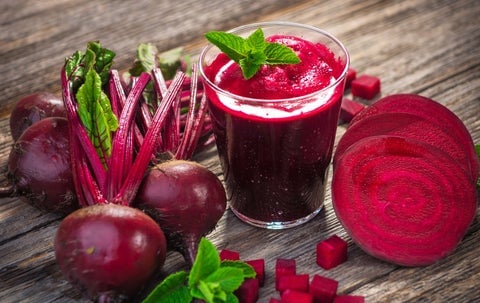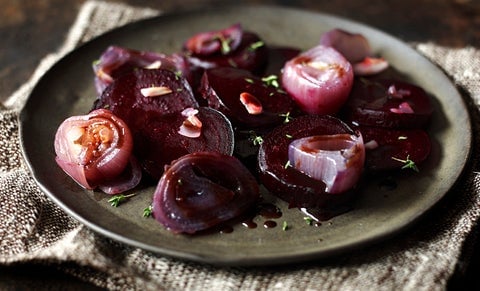Why Eat Beets?
It’s a “miracle vegetable”. The “brain-boosting superfood”. Yet beets are not normally the first thing that comes to mind when you think of fall, root vegetables, and a pantry staple that’s equally as delicious on its own or combined with other ingredients. Those headlines are correct though; beets are as healthy as they are versatile and delicious.
Belonging to the same family as spinach and chard, beets were first cultivated by the Romans and exploded in popularity in the 19th Century, when it was discovered they could be converted into sugar. The USA is one of the world’s largest commercial producers of beets, and while you may know it from borscht, or grated on top of salads, it’s distinctive flavour and nutritional value means there’s no reason not to make it an integral vegetable in your winter diet.
Runners, athletes, and fitness fanatics stand to gain the most from beets, thanks to their high level of nitrate. A compound known to decrease blood pressure, a numerous studies have shown that the amount of oxygen required by the body to sustain exercise fell after consuming beets – sometimes by as much as 3%. No wonder then that elite athletes have long extolled the virtues of drinking concentrated beet juice.

But cardiovascular health and physical stamina are just two of the health benefits you’ll feel from this wondrous, rich red orb. That brain-power claim? The increased oxygen flow that benefits muscles also helps cognitive function – participants in another study scored 4% faster on a reaction time test after drinking one cup of beet juice daily for a fortnight.
Beets are also rich in calcium, iron, vitamins A and C, and dietary fibre – a 100g serving contains 2.5 grams of fibre, helping you feel fuller for longer, keeping you regular, and lowering cholesterol. They’re also loaded with antioxidants – specifically phytonutrients called betalains – meaning they’re an excellent anti-inflammatory and may help reduce the risk of cancer. Betalains are great for liver function too, so can help with detoxifying and improving intestine function.

With just 44 calories, almost zero fat, and a host of other vitamins and minerals (folate, manganese, potassium), it’s one of the best foods to add to your diet over the winter months, when beets are in season. They’re great eaten raw, but they can also be roasted, pickled, added to stews and tarts, or lightly fried as a side. You can even add them to brownies!
We work hard to make sure we’ve always got some great organic beets for you, as well as various other beet products (try the gnocchi!). Add some to your cart today and get some of that “miracle” goodness for yourself.

